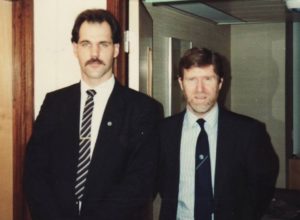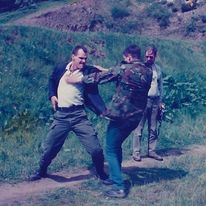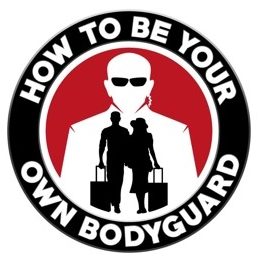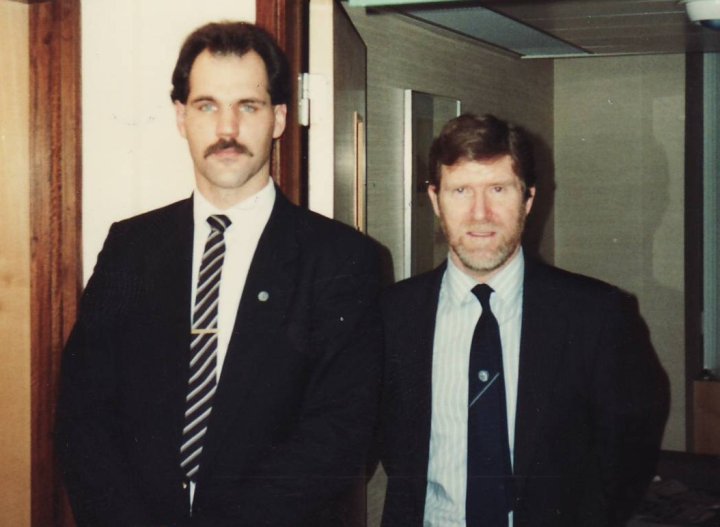Or How To Spot The Wannabe Bodyguard
BODYGUARDS VS BUDDYGUARDS

After reading this, you’re going to be able to tell the difference between a bodyguard and a buddy guard. Sadly, in America, at least, anybody can call themselves a bodyguard. Industries like plumbing, electrical, and law, require practitioners to go through hours of specialized training. After that, they have to pass tests and be certified by the State. The bodyguarding and security industry don’t need any of that. You can just stick a sign on your door, your website, or your business card, and voila, you’re a bodyguard. Only your not. You’re no better than a valor-stealing, wannabe Walter Mitty claiming to be a Navy SEAL or a Green Beret. In other words, you’re lying about your qualifications and abilities to big yourself up to people who don’t know any better. Read on to learn about bodyguards vs. buddyguards.
BODYGUARDS VS BUDDYGUARDS TRAINING

So here, for the uninitiated, is an outline of the sort of training a real bodyguard goes through.
To begin with, most, not all, but most will have a law enforcement or military background. Is it necessary to get work? Nope, but it will usually help on your resume for the simple reason you’ve been vetted, psychologically evaluated, can take orders, work as part of a team, have experience with weapons and tac-med, and so on. When you come to the table without that, you’re an unknown entity which can give some companies pause.
Next. They will have a certificate from a reputable training agency. That’s assuming they haven’t been trained in the military or by a government agency. Credible civilian agencies are usually run by guys who’ve worked high-profile details for years, have a solid military background in protection, or are ex-Secret Service.
A REAL BODYGUARD’S SKILLSET

Those classes cover the basics. Next, you have to get your foot in the door and begin to build your network. You will learn how to do a threat assessment, work an advance team, drive and work in a vehicle convoy, radio procedure, report writing, tac-med, specialized unarmed combat unique to the field of VIP protection (you’re not going to punch someone to get them out of the way at a 15,000 a plate dinner), drawing and firing a weapon from concealment, how to use the correct knife and fork, search a vehicle for IEDs, route planning, liaising with local officials, electronics that can augment your manpower and the balletic footwork whether you’re by yourself or in a team of two, 3, four, six, eight, ten, twelve or twenty-four other agents. You’re also going to be able to do mail screening and background checks on people coming into contact with your client.
IT DOESN’T STOP THERE
You’ll also learn if the school is any good, how to introduce a Duke to an Earl, an Ambassador to a Count, a King to a Baroness, etc. Yep, all that is part of the job. You might also learn high-speed evasive driving, PIT maneuvers, foreign languages (at one point, I spoke five), small unit tactics, and more.
This doesn’t stop here. All the guys I worked with sought out another fifty to 100 hours of continuing education every year. That might be learning to fly a plane, a shooting course, a driving school, learning to ski, getting their captain’s license, learning another language, or updating their medical skills.
THE BUDDYGUARD
At this point in bodyguards vs. buddyguards, now we come to the wannabe. He’s usually a gym rat with 20-inch arms or a martial artist. Someone in a musician’s posse, who knows no better, thinks that size or martial skill means he is bodyguard material. They offer the guy a job, and the next minute, he’s convinced he’s a bodyguard.
To put that in perspective, it’s like calling yourself a mechanic because you helped jump-start a car or change someone’s tire.
Unfortunately, I had to work with some of these buffoons over the years when crossing over to work in the music industry. (For the record, a lot of guys who work corporate security don’t end up working in the music industry and vice versa. I was one of the rare few who made the transition back and forth).
The first major music gig I did we were on tour in the States. I got introduced to my buddy guard with the 20-inch arms. The house lights dimmed, and he didn’t even have a flashlight to show the band the way to the stage.
A CLASSIC EXAMPLE
When one of the band members tripped, he didn’t have a first aid kit or the training to take care of the injury. He balked at my suggestion to have one of us go ahead to the venue to scope it out and liaise with the pit security, figure out the radio dead spots, and so on. It never even occurred to him what any of that even meant or why it was necessary. He never missed a day in the gym, though…so that was good.
He also spent a great deal of time trying to get in pictures with the band members and scoring groupies. The agency I trained with had a hard rule. If we started turning up in pics, looking like the fifth member of the band, we’d be fired.
BUDDYGUARDS ARE EVERYWHERE
These guys are rampant in Hollywood, NY, and Miami, hanging around in clubs. A lot of them are big, but you just know they couldn’t run 100 yards with their client on their shoulders to get them to safety without collapsing and going into cardiac arrest. Other than looking imposing or being able to fight, they bring absolutely nothing to the table.
So, if the guy you meet is a gym rat or martial artist and is claiming to be a bodyguard, ask to see his certification from one of the training agencies and his resume. If he can’t produce it, or it doesn’t have any of the specialized training mentioned above, he’s not a bodyguard at all. If his only gig is looking after DJs or musos in clubs or checking backstage passes, he’s not a bodyguard, he’s just another wannabe. So now you know. Next time you’re struggling with bodyguards vs. buddyguards, you’ll be able to tell the difference.
- A lot of industry personnel don’t like the term bodyguard. They prefer to call themselves close personal protection agents or personal protection agents. I’m old school and prefer the term bodyguard simply because everyone knows what it means. Someone at a party once told me they thought a personal protection agent sounded a lot like a tampon…so there is that.


